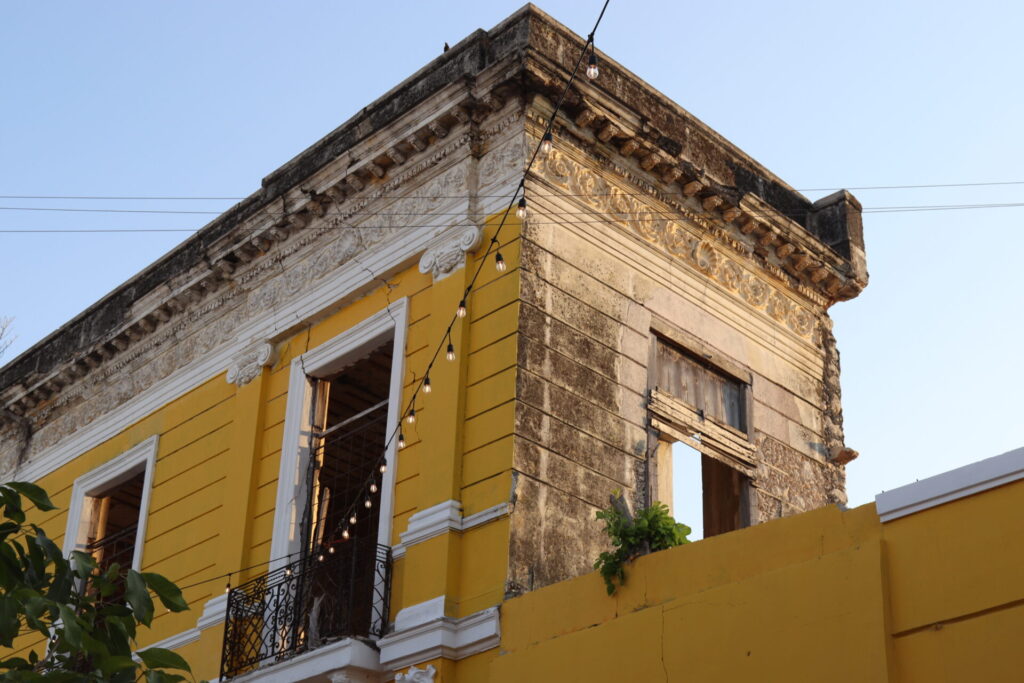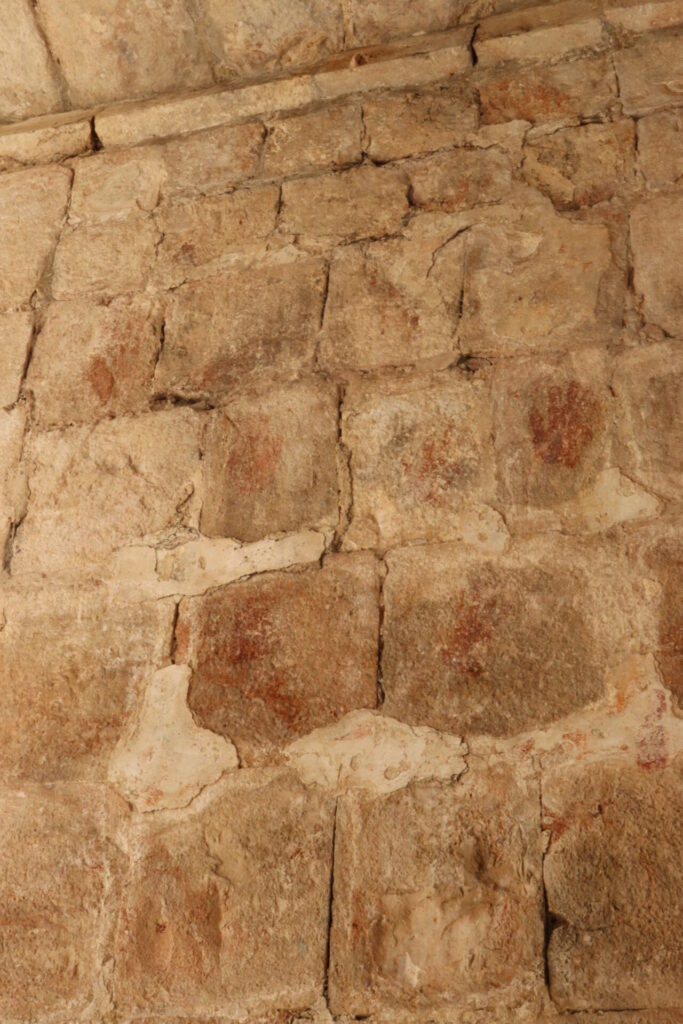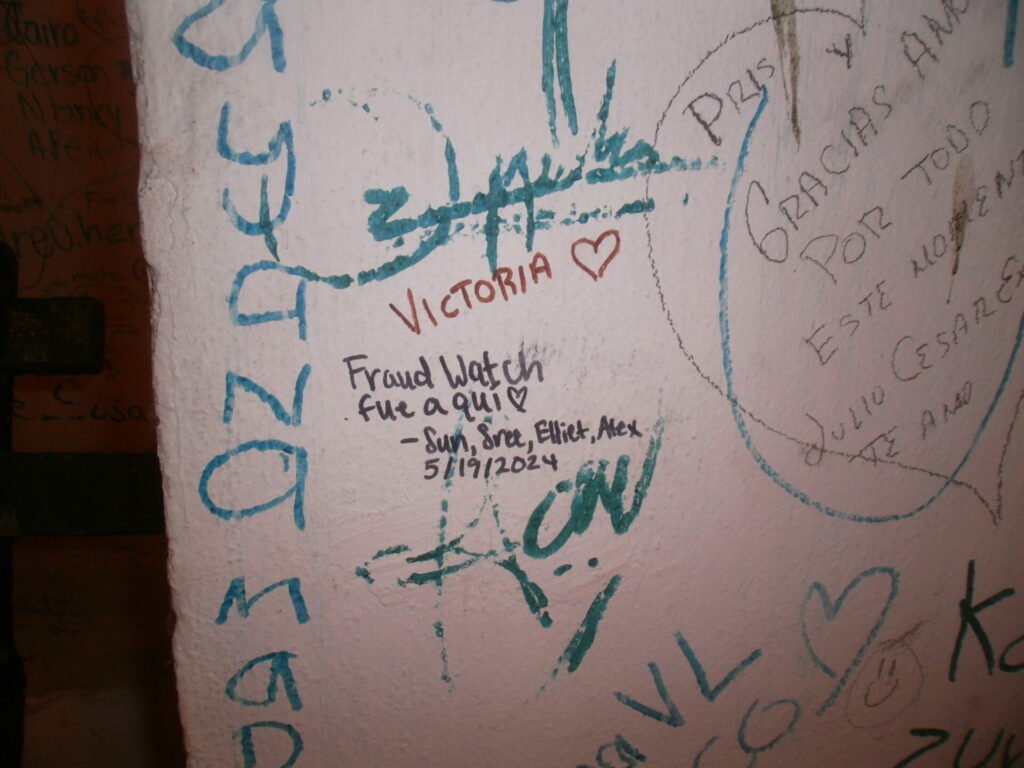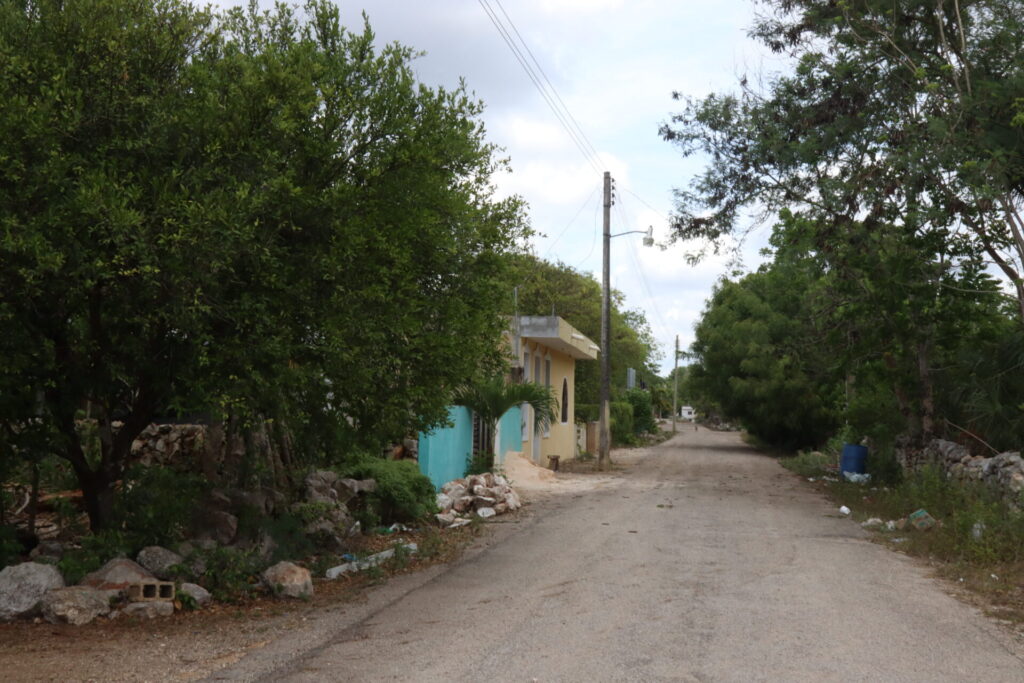I will carry with me the experiences I’ve had here, the people I’ve met, the questions I’ve had, and the places I’ve seen to wherever I find myself in the future. I don’t think I have anything profound to say about how I’ve changed as a person in my time here, just that I am aware I have. I am more trusting in myself and more aware of how I interact with the world. I had the chance to study abroad for two weeks in Germany during high school, and that trip, as well as my experiences in freshman year of college, made me feel more comfortable here. I want to reflect on the times I felt uncomfortable, though. In going alone to places where I struggled to communicate and understand. On the street where I found myself alone and talking with men. Struggling between supporting vendors and saving money.
I think of the movie Lost in Translation (Coppola, 2003), with a young white American woman and a middle-aged white American actor finding themselves lonely in Tokyo. Sofia Coppola, the director, sympathizes with these characters as they find themselves emotionally misunderstood by their partners and literally not understood by those around them who speak Japanese. Their reaction is not to try to learn any Japanese, but in several cases to mock those speaking Japanese. I recall having (almost) arguments with friends about my lack of sympathy towards these people. These two Americans aren’t entitled to be catered towards in a country that isn’t theirs, that doesn’t owe them anything.

I think I feel guilt because of how I’ve felt catered towards in certain situations on this trip. I don’t mean to criticize how this trip was organized in any way, I just want to note how I have felt uncomfortable. Most recently, in Yaxunah I felt guilt over how the students from Valladolid were helping serve meals and doing dishes. They had prepared games for us, and set up a fire, but we had little to give them in return. When Elias spoke at the archeological site mostly in English, I felt this creep up the most. Why was it that we were so prioritized? Restaurants around the city have names solely in English, and menu options in Spanish and English. Sold in markets and stores are bracelets and shirts with American team names: I remember even seeing this at Chichén Itzá.
I had expectations to practice my Spanish a lot on this trip in order to engage and communicate and to prepare for taking Spanish classes in the future. I also had expected to learn a lot about the history of Mérida and the Mayan people. Those were my priorities, but I cannot lie that I was excited for the more vacation-y aspects, including being able to go out to clubs and enjoy the food.
I want to travel a lot more in the future, but I want to be mindful of how I do so. I find it frustrating how people view traveling to places like Mexico and Rome (where I plan to do a semester abroad) in such different lights. It makes me think about how we’ve approached the idea of tourism as an issue here versus looking at the idea of tourism in a place like Rome or even in our own country. I feel a lot less guilty for buying an I Love New York City shirt than I would feel buying an I Love Mérida shirt, and that is for a lot of reasons, but mostly because of the complicated history of Mérida and the Yucátan. Colonization has had a big impact on both cities but in completely different ways.
I think that all people are the same, in a general sense. One of the things I remember most from Uxmal is seeing handprints on an archway into the main square. So many years ago, these people- maybe just those in the city, or construction workers, wanted to put their handprints there, wanted a permanent symbol that they were there. I am possibly being dramatic, and maybe these handprints were part of a larger artwork, but still. These people were there. At Mercado 60, we noticed people had drawn their names on the wall and decided to as well. Now we have a permanent symbol that we were here (though it won’t last as long as Uxmal). Ingrained in the human soul is a desire to matter, to be remembered, to have an impact. I think right now I am struggling with the idea that we are about to leave this place – possibly forever. I will take with me the sea glass and necklaces, gifts for my family and journal entries, used tickets and SD cards filled with photographs.


Will the city forget? My trips into tourist shops, saying “No, gracias” to people offering tours or shirts, paying a higher price for museum entry because I am a foreigner. Mérida is expanding itself on the grounds of tourism, on the idea of impermanence. The government is prioritizing those who come and go over the people who have been here since the classical period of the Maya, and we can blame those in power but inevitably, we are contributing to that. Contributing to the idea that this materiality of tourism is essential to the economy.
It is hard to define a right or wrong way to be a tourist. Cannibal Tours certainly exemplifies the farthest side, if the morality of tourism was on a spectrum. I don’t feel like I can accurately place our group on that spectrum, but I hope we would be on the opposite side. I think even within our group, people have different approaches to how they have spent their time here. Everyone has different goals and different things they’ve hoped to accomplish here. My bucket list included things like “Find Percy Jackson in Spanish” and “Try a Malteada”. There isn’t one right way to approach a place or an experience, and hopefully everyone found something to takeaway from studying abroad in their own way.
